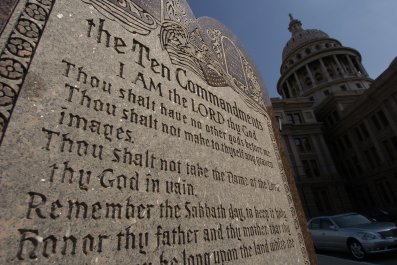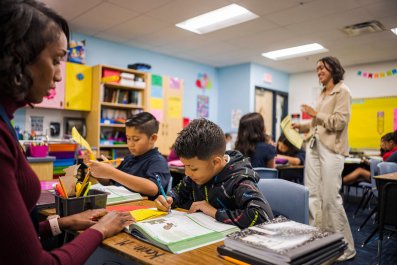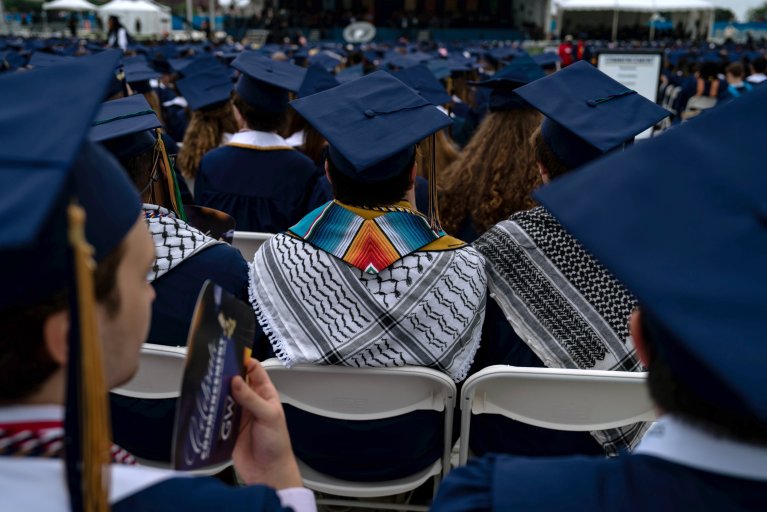The Los Angeles Unified School District (LAUSD), the second-largest school district in the nation, voted on Tuesday to ban the use of cellphones during school hours.
The decision by the LAUSD, which serves over 429,000 students in grades K-12, comes as momentum has grown nationwide to ban smartphone use in schools to improve student's online safety and learning. The resolution was led by LAUSD board member Nick Melvoin, who said in a statement shared with Newsweek, "Kids no longer have the opportunity to just be kids."
"I'm hoping this resolution will help students not only focus in class, but also give them a chance to interact and engage more with each other—and just be kids," Melvoin added.
According to a report by the Los Angeles Times, proponents of the resolution passed in a 5 to 2 vote by the LAUSD Board of Education say that mobile device usage leads to distractions and anxiety in students and allows for cyberbullying to take place. The ban is set to take action in January 2025, although additional details about how the school system plans to enforce the measure are to be decided at a future board meeting.
LAUSD Board President Jackie Goldberg and board member Tanya Oritz Franklin co-sponsored Melvoin's resolution.
Those on the board who voted against the resolution Tuesday included member George McKenna, who according to the LA Times said that he had concerns about a total ban on cell devices. Board member Scott Schmerelson also voted no because he said that it was crucial to make a distinction between instructional and noninstructional time at school, according to the report.
While questions remain on how the Los Angeles school district will enact the ban, some schools that have enacted similar bans have used pouches that keep cellphones inaccessible until the device is tapped against a magnet to unlock it.
New York Governor Kathy Hochul said during an interview with the Guardian in May that she was planning on introducing a bill to ban mobile device use in schools statewide.
"I have seen these addictive algorithms pull in young people, making them prisoners in a space where they are cut off from human connection, social interaction, and normal classroom activity," Hochul, a Democrat, told the paper.
Florida became the first state to require its public schools to ban student usage of cellphones during class last year. Proposals for similar bills have been made in several other states, including Minnesota, Hawaii, Illinois, New Mexico, South Carolina and Nevada.
Critics of cellphone bans argue that the measures harm student safety and infringe on students' rights. In February, students at James Madison High School in South Houston protested their school's cellphone ban with a walkout. Students who participated in the demonstration held signs that read, "We are high school kids not cellmates!!!" and "You are not here to imprison us or confine us."
A parent of a student at James Madison High School told the Houston Chronicle at the time that they were concerned about not being able to reach their children in the case of an emergency due to the ban.
"It's a safety thing," Anthony McDonald told the Chronicle. "I bought my kid's phone because my daughter has asthma, and I said if something goes wrong, I don't want five different teachers calling me saying something happened to my daughter. She needs to call me."
Disclaimer: The copyright of this article belongs to the original author. Reposting this article is solely for the purpose of information dissemination and does not constitute any investment advice. If there is any infringement, please contact us immediately. We will make corrections or deletions as necessary. Thank you.




